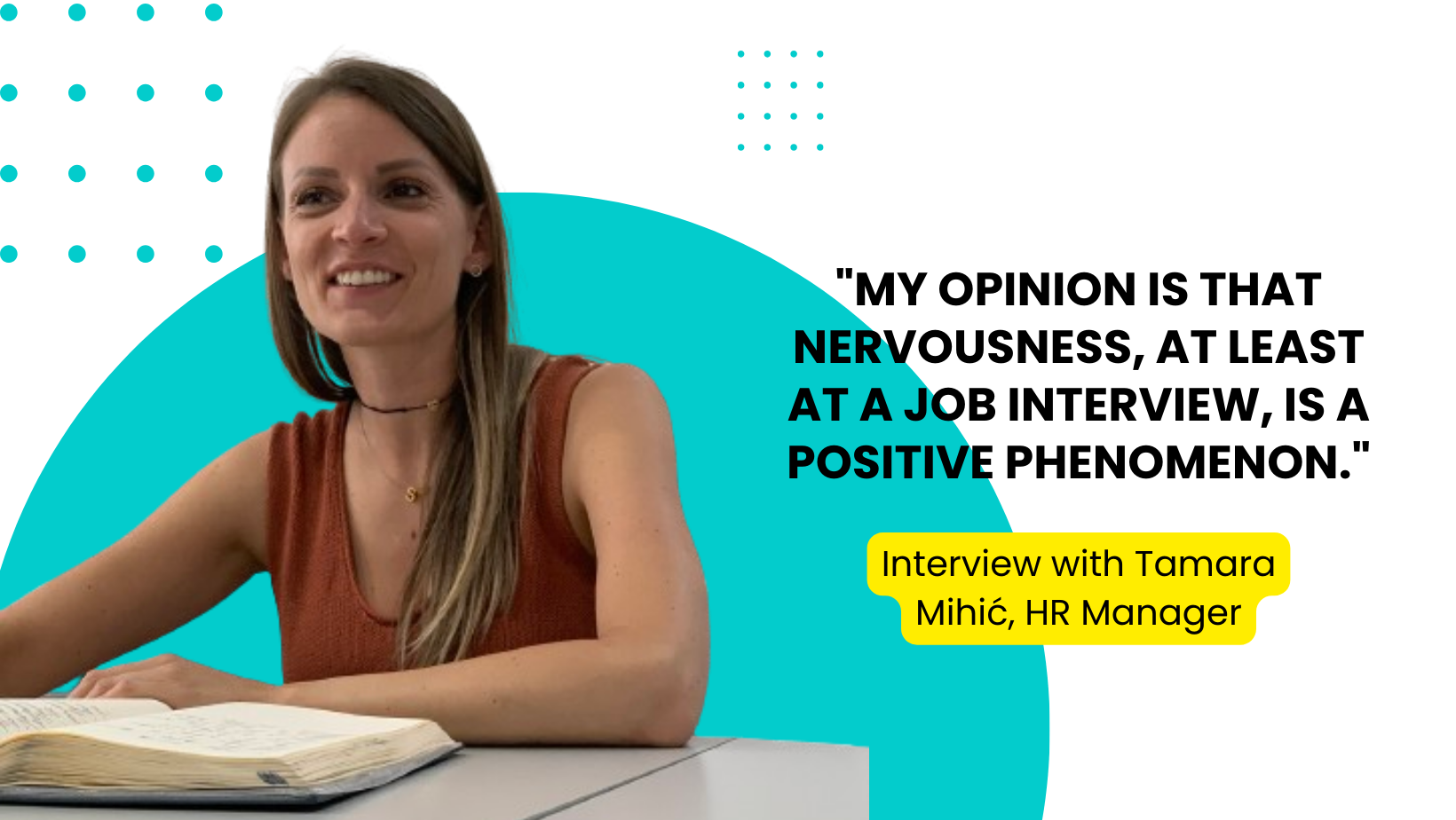
The selection process in our company involves a detailed analysis and selection of candidates whose competencies best match the requirements of our company. With every open competition, the number of candidates is huge, and my job is to recognize and choose the most interesting candidates for us.
The duration of the selection process itself depends on several factors: the number of registered candidates, the number of candidates who agree to the necessary conditions after the initial HR interview, the speed of the candidate’s response to the sent request for an interview, then the number of candidates who seemed interesting to us… In the Prozone company, we generally have two rounds of selection. The first round involves an initial meeting to get to know me, HR, company culture, business concepts, way of working, and way of evaluation. In the second round, a technical interview is held, consisting of a series of questions in a test adapted to the candidate’s experience and a conversation about previous knowledge, competencies, projects, and experiences that the candidate has undergone.

What I assess and what my job is is, first of all, whether the candidate can fit into one of our teams. Technical competencies are a prerequisite for a certain job, but they become irrelevant if the candidate is someone who, for whatever reason, does not fit into our team. With each candidate, I try to create as broad a picture as possible, from what type of person he is, what his character traits are, what his temperament is, whether he is more of an individual or a team player, how challenging the projects in our company will be for him, whether we are compatible, etc. An hour-long HR interview is a short period to get to know a person, and the biggest challenge of this part of my job is to evaluate a person based on a relatively small amount of information. After a large number of interviews, I am now familiar with this, so I know how to assess the weaknesses and strengths of each candidate. The IT industry is developing at an incredible speed; we have all witnessed it, and therefore young people change jobs quickly and often. My task is to find patterns to stay with us as long as possible, as well as to monitor the growth and development of each employee individually.
The hardest part for me was understanding and accepting a different way of thinking. In an IT company with about fifty employees, there are few non-technical personnel. For those of us in that category, the daily challenge is communicating with our technical colleagues and conveying information effectively. We, the sociable types, are talkative, communicative, and creative. We constantly exchange opinions, which can be boring and tiring for colleagues who work from home. It took some time for both sides to find common ground. But now, after five years, I can say we speak the same language.

My opinion is that nervousness, at least in a job interview, is a positive phenomenon. It is an indicator that it is important to the candidate that he or she cares, that the outcome is important to the potential colleague. Of course, one should not allow that nervousness to paralyze a person to the point that he is unable to show what he knows; it should be more of a kind of stimulation. My advice to young programmers and to candidates in general who are coming to a job interview for the first time is to listen carefully to the questions they are asked because they often contain the answers themselves. Then, they never come to the interview unprepared, because in that way they waste both their own and other people’s time, and they do their best, because what’s the worst that can happen?